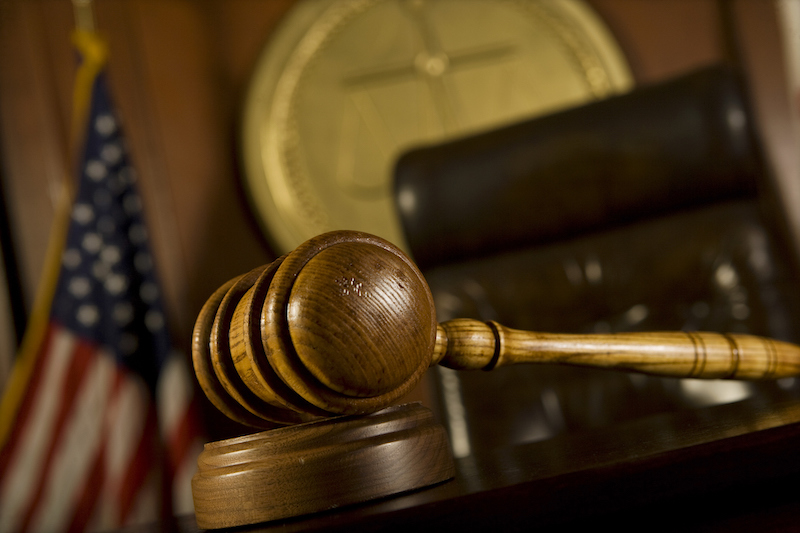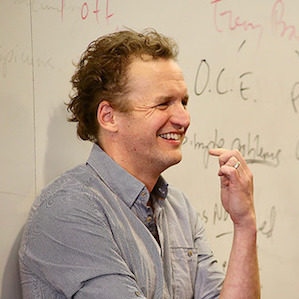
The justice system needs to become faster, cheaper, and better for the poor and the middle class.
More than half a century ago, the U.S. Supreme Court guaranteed free lawyers for all felony defendants who could not afford legal representation in the landmark case of Gideon v. Wainwright. Yet too often, Gideon’s trumpet is muted. Far too many appointed criminal defense lawyers are overburdened. So they often plead their clients guilty as quickly as they can.
The situation is even worse in civil cases, where parties have no right to appointed counsel. As a result, the poor and middle class often try to navigate the labyrinth of legal procedure on their own. Worse yet, many “lump it” and give up on trying to enforce their rights at all.
Many reformers argue that the problem stems from a lack of money. Legal scholars and bar associations have long advocated more funding to hire more lawyers. On this view, Gideon and the cases that expanded the right to appointed counsel to misdemeanors reflect the 20th-century march of progress towards more lawyers and so more justice. The solution that these reformers advocate is to expand Gideon to civil cases and to even more areas of criminal law.
But this account of history is much too rosy.
Today, there are still too few lawyers and there is too little funding for all criminal cases. And Gideon and its progeny often mean little in practice: “meet ‘em and plead ‘em” lawyering means that many defendants plead guilty at their first court appearance, without their lawyers doing any substantive work for them. Taxpayer funding of criminal defense is unpopular and is not about to get better. Meanwhile, other professions develop technology, self-help advice, and support staff to drive down costs, but lawyers resist innovation and competition.
Access to justice matters, all the more so in a country founded on the rule of law. But lawyers and procedures are means to justice, not ends in themselves. Often they promote justice, and they matter for felonies and other complex, high-stakes cases.
But lawyers can also impede justice, by for instance delaying collection of child support from “deadbeat dads.” Lawyers are also expensive. And paying for them can crowd out even more urgent needs, such as policing, education, health care, and housing.
Yet the legal system can do better. Our new book, Rebooting Justice: More Technology, Fewer Lawyers, and the Future of Law, challenges the conventional wisdom that more lawyers equals more justice. We argue that society needs triage to narrow its ambitions and focus in on the most complex, most serious, and most meritorious cases. The government should focus its limited funding on felony defense and similar matters to make lawyers meaningful in practice. That means paying defense lawyers salaries comparable to those of prosecutors, hiring enough of them so their caseloads are comparable as well, and giving them similar investigative and forensic support.
By contrast, courts should handle minor criminal matters in a way that does not require lawyers at all, for the state or for the defendant.
We envision a grand bargain, husbanding resources for the most serious cases—mainly felonies and the most serious misdemeanors—in exchange for streamlining less serious ones and lowering the stakes. Trained paralegals or social workers could represent defendants in those cases. Judges, court clerks, and court websites could help litigants to represent themselves by offering them preprinted forms, interactive computer kiosks, plain-English instructions, and helpful questions. Prosecutors would have incentives to send minor cases to these faster courts, reserving felony charges and sanctions to more serious cases that truly need them.
We propose increased licensing of legal paraprofessionals, just as medicine has licensed nurse practitioners and the like to provide simple healthcare. The Washington State Bar Association’s program of limited legal technicians is currently limited to family law, but it could be expanded to low-level criminal work.
Computers and online dispute resolution—like eBay’s dispute resolution algorithms—can resolve some of the easiest cases, leaving only a fraction of disputes with significant factual issues or other complexities for humans. Most misdemeanors end in plea deals, and computers are well-suited to guide such routine, high-volume negotiations. Courts and legislatures also need to simplify rules of evidence and procedure, in addition to instructing court clerks and judges to help defendants and victims to do more of their own work.
The current system of justice for poor and middle-class people is broken. Courts have repeatedly created new rights to lawyers, but legislatures have repeatedly failed to fund them. Simplifying this system would also be more democratic and would empower ordinary citizens. And it would hark back to America’s historical justice system, in which literate citizens were able to represent themselves in court effectively.
In short, the American legal system needs to go on a diet. It needs to become faster, cheaper, and better. And in simple, lower-stakes cases, lawyers need to get out of the way, so more flexible and less costly alternatives can flourish.
* * *
As a postscript, we want to take a moment to express our gratitude to the editors of The Regulatory Review and to the exceptional group of commentators they have gathered to write about our book. It is every author’s dream to write a book that inspires thoughtful critique and respectful dialogue. Here we have experienced both. We are ever grateful.
The Review kindly offered us an opportunity to write a response to the essays that follow ours in this series, but we prefer simply to express our gratitude and to let our book and these essays speak for themselves. Rebooting Justice is a big-picture book, and those sorts of works naturally draw fair logistical and philosophical critiques. The essays that follow in this series are more than fair and we take them in the spirit in which they were intended: as assistance and food for further thought from fellow travelers.
Benjamin H. Barton and Stephanos Bibas’s new book, Rebooting Justice: More Technology, Fewer Lawyers, and the Future of Law, was published last year by Encounter Books.
This essay is part of an eight-part series, entitled Revamping the American Justice System.





